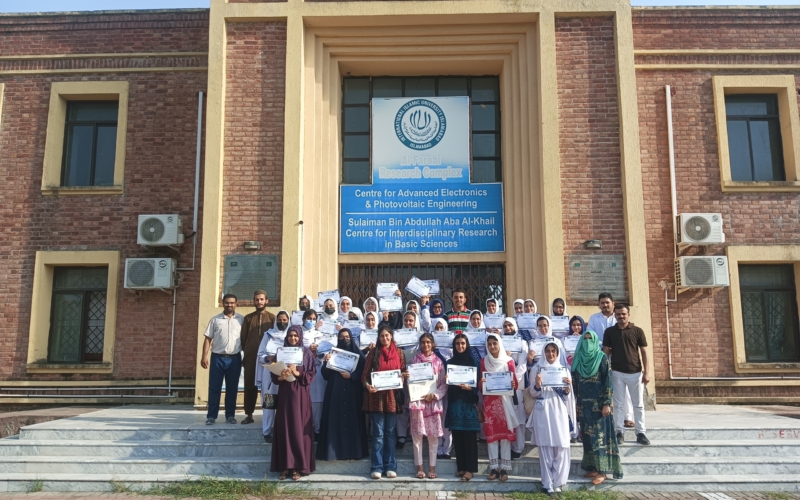By: Shehneela Mazhar
Fulbrighter Dr. Habib Ahmad, an Assistant Professor at the Center for Advanced Electronics & Photovoltaic Engineering (CAEPE) IIU Islamabad, recently completed an Alumni Small Grant (ASG) initiative entitled, “U.S.-Funded Workshops for High School Students: Exploring Nanotechnology for Sustainable Energy in Pakistan.” The project’s objective was to host a series of four scientific enrichment workshops catering to SSC and HSSC science students from both public and private institutions in Islamabad and Rawalpindi. The primary focus was to introduce these students to the realm of sustainable energy and nanotechnology within the context of Pakistan’s developmental needs.
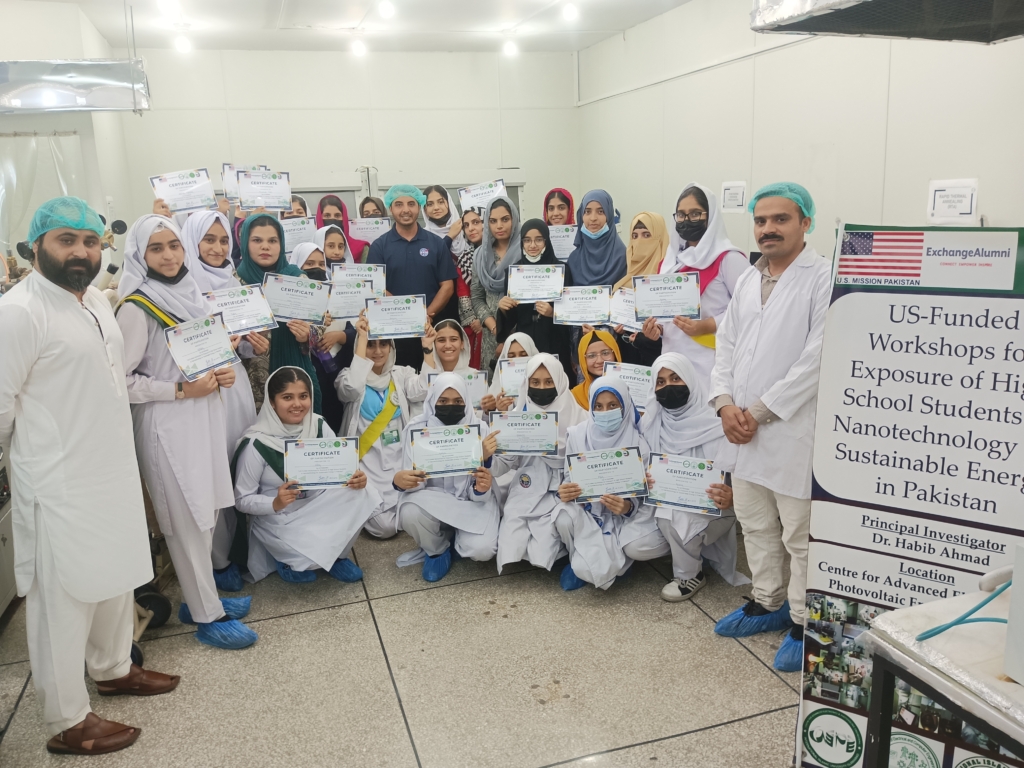
The project was designed with the following goals in mind:
- Foster STEM education by providing engaging and interactive activities centered around nanotechnology.
- Cultivate awareness about potential higher education prospects in the field of nanotechnology, particularly in the United States.
- Offer guidance on how students can align their future careers with Pakistan’s sustainable development goals
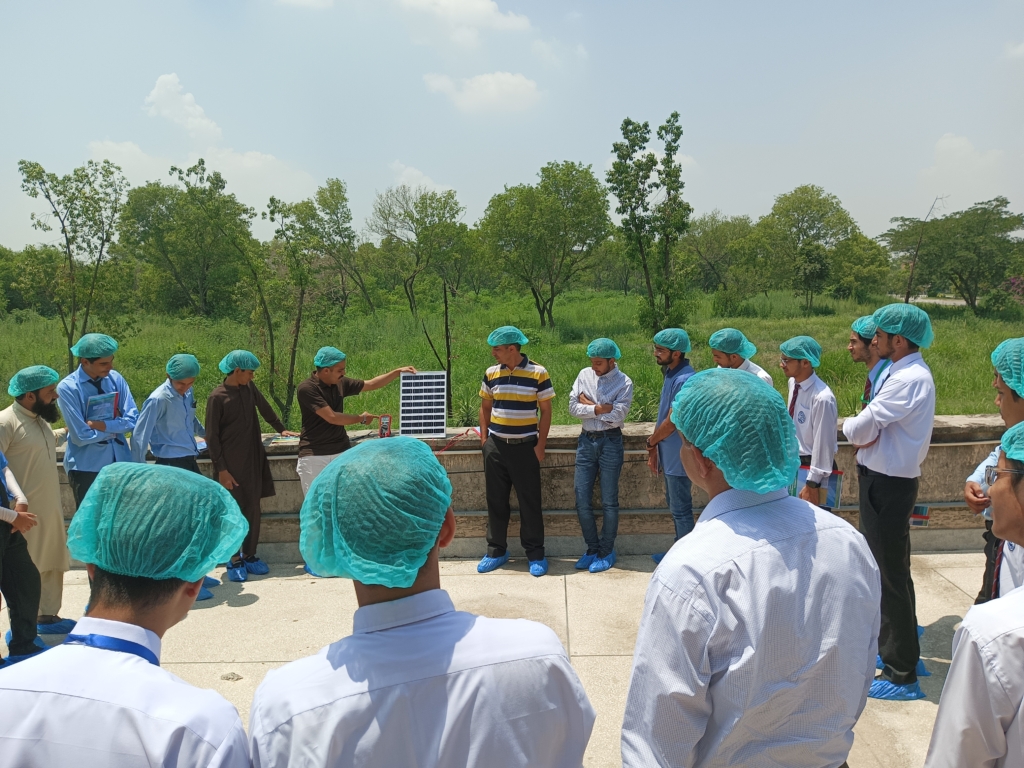
The workshops featured a range of scientific activities, including the design and simulation of electronic devices, exploration of solar energy through activities like automatic street lights and solar panel measurements, evaluation of standard solar cells using a solar simulator, study of semiconductors through X-ray techniques, analysis of device behavior under varying temperatures, the purification of gold using Aqua Regia, and the observation of a human hair under a scanning electron microscope.
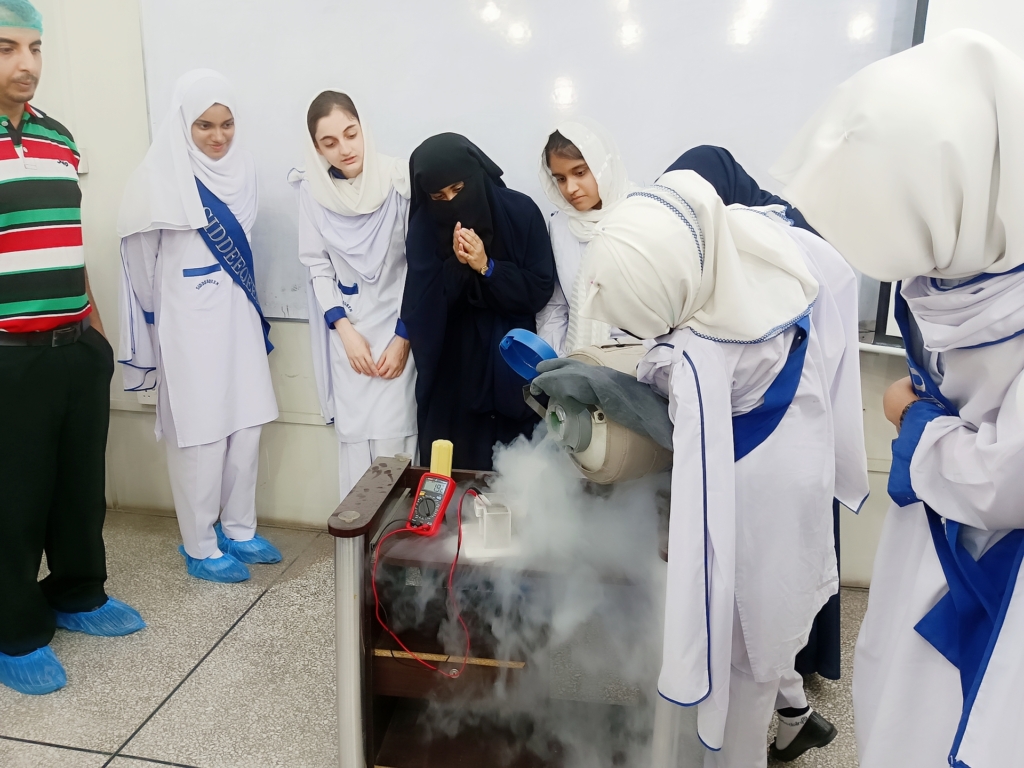
One of the most noteworthy outcomes of the workshops was the knowledge-sharing cascade effect. The primary participants, hailing from diverse educational institutions, went on to share their firsthand experiences with a broader secondary audience. This ripple effect has contributed to a wider positive influence within the motivated student community.
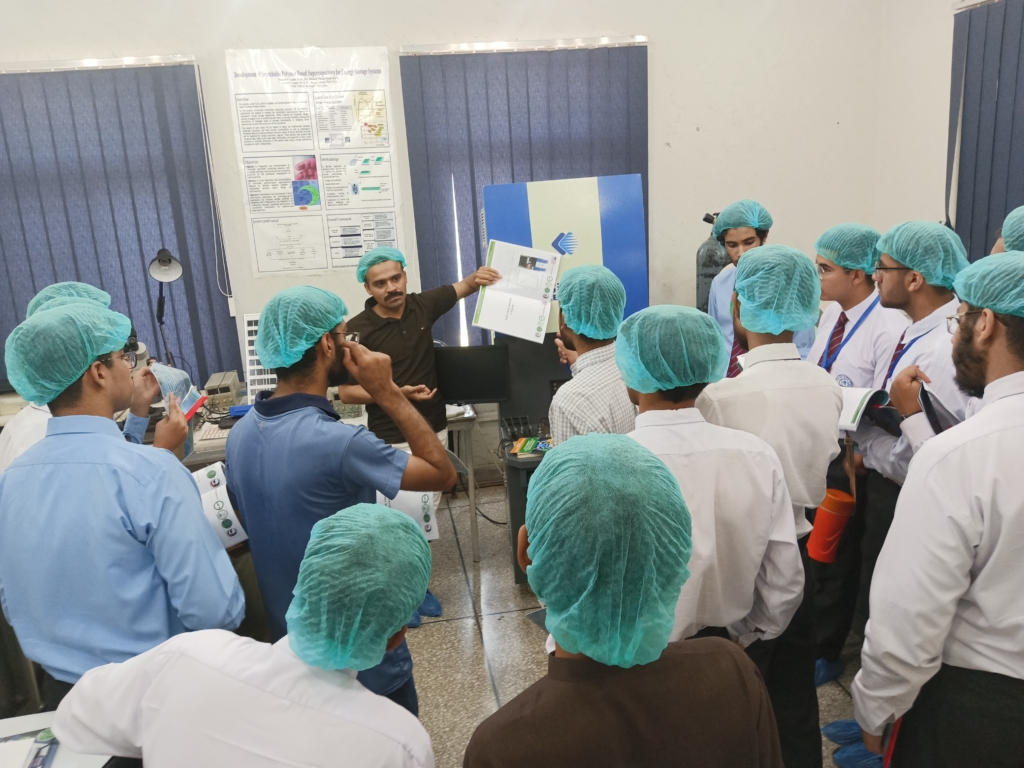
Two beneficiaries of the project, Shaiza Saleem and Fatima Fida, graciously shared their personal insights on the impact of the workshops. Shaiza expressed, “I had the privilege of attending the U.S.-funded nanotechnology workshop. The experience was simply remarkable. I was exposed to cutting-edge equipment and a plethora of experiments at such a young age. I’m keen on participating again and I strongly encourage other organizations to support such workshops. I extend my heartfelt gratitude to the U.S. for making this workshop possible.”
Fatima’s sentiments echoed a similar enthusiasm: “Today, I had the opportunity to participate in a nanotechnology workshop hosted at the International Islamic University. The experience was beyond words. While our textbooks offered limited exposure to technology, witnessing practical applications was truly awe-inspiring. Workshops like these are crucial for high school students like us. I eagerly anticipate attending more workshops of this nature in the future.”
Dr. Habib Ahmad, reflecting on the collaborative efforts, emphasized the seamless partnership with the U.S. Mission and the Pakistan-U.S. Alumni Network (PUAN) in realizing the project’s objectives. The online application process, convenient funds transfer mechanism, and the responsive support from both the U.S. Mission and PUAN were pivotal in the project’s success.
Undoubtedly, the project has yielded significant success, leaving an indelible positive impact on participating students. It is our hope that this endeavor will kindle inspiration among other students, motivating them to explore careers in STEM fields and contribute meaningfully towards Pakistan’s sustainable development goals.
